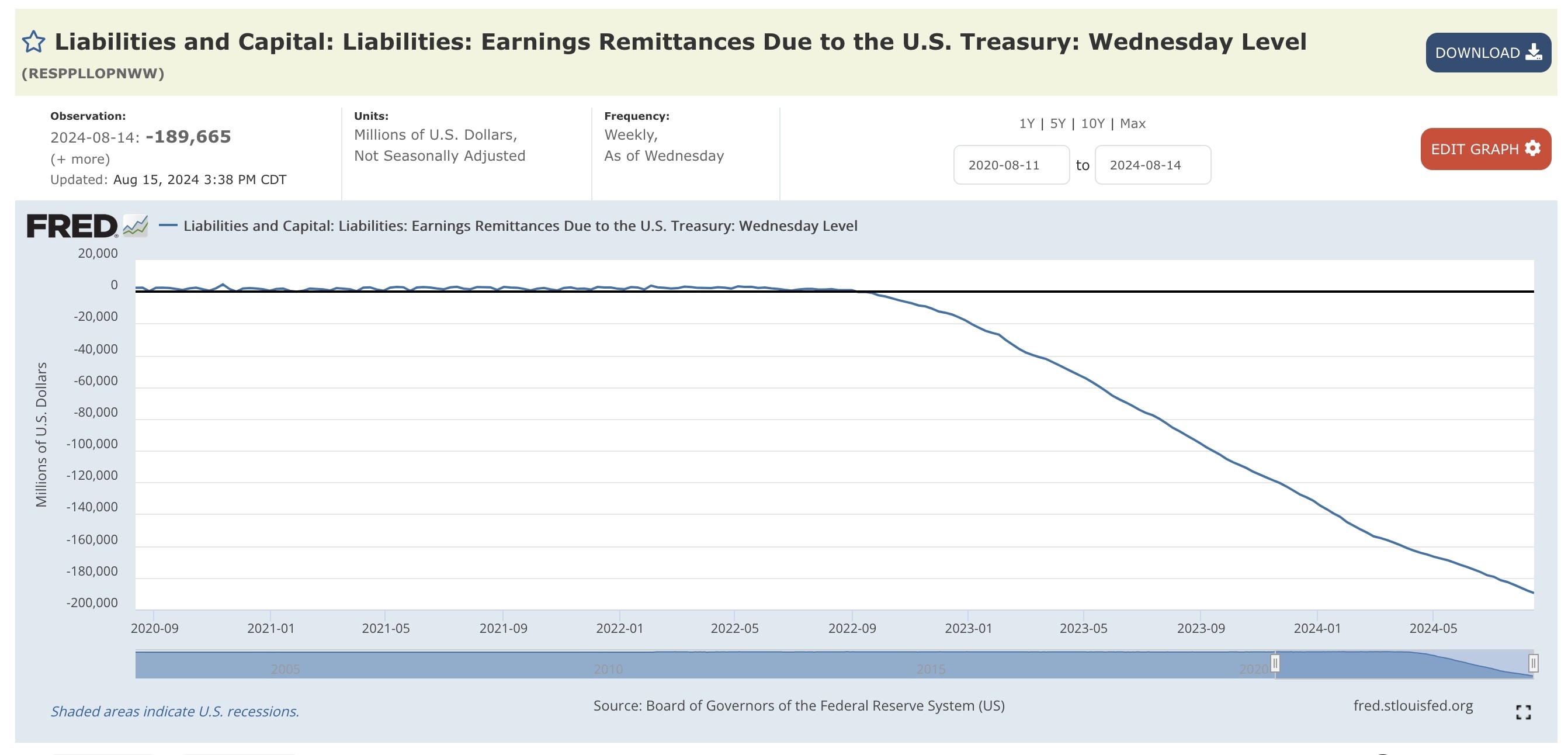cross-posted from: https://lemmygrad.ml/post/5429645
The Federal Reserve is implementing a ‘soft landing’ strategy that prioritizes big businesses and financial interests over the working majority, in contrast to 2008 when the market crashed and bailouts favored large corporations at the expense of taxpayers. The current approach involves protecting these interests upfront, ensuring their stability during this economic downturn.
Fed “losses” are banks “gains” in terms of revenues, that ultimately become net income and turn into capital. The fed bought up overpriced bonds from financial institutions like Goldman Sachs, which wasn’t a significant issue when interest rates were under their control between 2008 and 2022. However, the loss of credibility on inflation led to rate hikes, causing accumulated losses.
The Fed chairman has stated that small businesses will suffer while big businesses remain strong due to their cash reserves. This strategy comes at a significant cost for average individuals who may face unemployment and potential loss of homes as they bear the brunt of the economic fallout.
Rate hikes and macro-management of money markets are designed to make borrowing expensive, protect big banks, and reduce demand by pushing small and mid-cap stocks into bankruptcy. This approach seems poised to result in further consolidation and monopolization of capital.



The ultimate purpose of the financial games the Fed plays is to protect the interests of large financial institutions. The only way that can be achieved within the context of the current system is by fucking over everyone else. That’s what the Fed is doing right now.
I agree. I am mainly critiquing your graph. You are showing the losses, which are large and look scary. But you’re not showing the context of how large the past profits have been.
And even in a world where the Fed is making profits by exchanging short duration for long, they are still providing a huge subsidy to the financial system. So it’s not accurate to say these recent losses are a measure of the subsidy to financial institutions. It just feels like the dumb RRP graphs you see on superstonk
yeah that makes sense